- 留学前の教養として有名な詩を読んでおきたい
- 英語の詩もたくさんありすぎて、何を読んだらいいかわからない
- 英語の詩の楽しみ方がわからない
こんなお悩みをお持ちの方に10作品をご紹介します。
詩を知っていると教養のある人物と見られ、エンターテインメントもより楽しめるようになります。
なぜなら、英語圏において詩は、会話の中や映画・ドラマの中で頻繁に引用されるからです。
一方で、英語の詩は昔の言葉や会話で聞きなれない単語も多く用いられるため、ネイティブでも一回で理解するのは困難です。
そのため、作者のこと、当時の時代背景などを理解し、解説を読んで自分なりに消化できるようになる必要があります。

小・中学校の頃、4年間アメリカのニューヨークで過ごしました。
社会人でも再びニューヨークに留学した経験から、英語の重要性、勉強方法、英語圏の文化などを記事にしています。
英語の詩はとても難解です。
ネイティブが読んでも理解できないものがほとんどなので、簡単な言葉で訳し、背景なども交えて解説したいと思います。
- ウィリアム・シェイクスピアの代表作「Sonnet18」
- ウィリアム・ブレイクの代表作「The Tyger」
- パーシー・ビッシュ・シェリーの代表作「Ozymandias」
- エドガー・アラン・ポーの代表作「The Raven」
- ウォルター・ホイットマンの代表作「O Captain! My Captain!」
- エミリー・ディキンソンの代表作「Because I could not stop for Death –」
- ラドヤード・キプリングの代表作「If」
- ロバート・フロストの代表作「The Road Not Taken」
- シルヴィア・プラスの代表作「Lady Lazarus」
- マヤ・アンジェロウの代表作「Still I rise」
- 英詩がわかりやすくなるおすすめの解説本
- まとめ
ウィリアム・シェイクスピアの代表作「Sonnet18」

- 作者:ウィリアム・シェイクスピア(William Shakespeare)
- 発刊:1609
- 国:イギリス

ウィリアム・シェイクスピアは「ロミオとジュリエット」などで有名で、知らない人はいないと思います。
ソネットは詩の形式のことで、The Sonnets(ソネット集)は全154編のソネットで構成されていますが、最も有名なのが、このSonnet18です。
ちなみにタイトル「君を夏の日と比べよう」の「君」は男性です。
Sonnet 18: Shall I compare thee to a summer’s day? Shall I compare thee to a summer’s day? Thou art more lovely and more temperate: Rough winds do shake the darling buds of May, And summer’s lease hath all too short a date; Sometime too hot the eye of heaven shines, And often is his gold complexion dimm’d; And every fair from fair sometime declines, By chance or nature’s changing course untrimm’d; But thy eternal summer shall not fade, Nor lose possession of that fair thou ow’st; Nor shall death brag thou wander’st in his shade, When in eternal lines to time thou grow’st: So long as men can breathe or eyes can see, So long lives this, and this gives life to thee.
解説はこちらの記事で書いています。
ウィリアム・ブレイクの代表作「The Tyger」
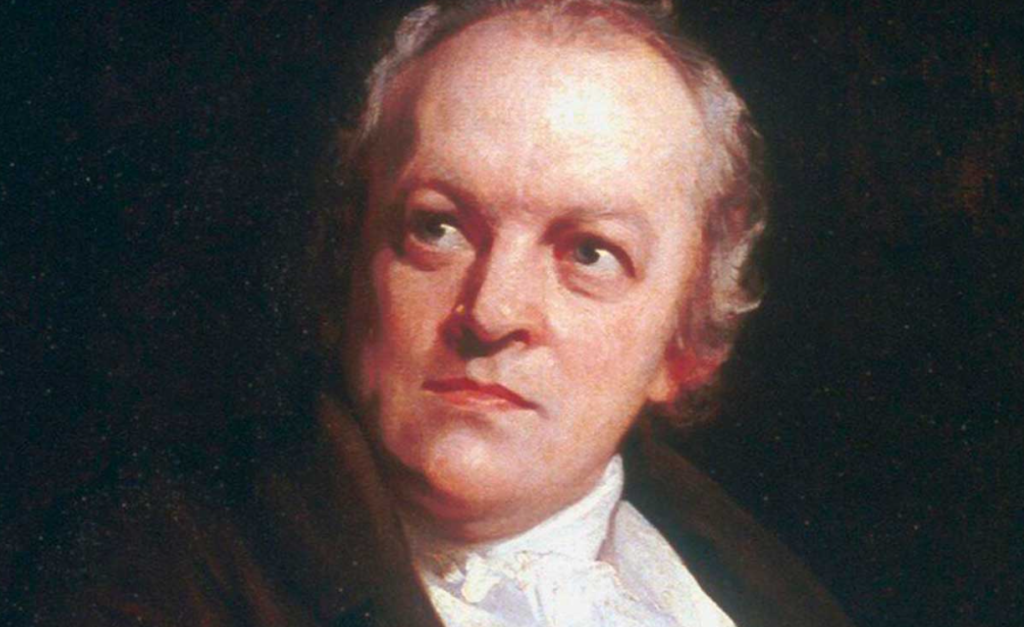
- 作者:ウィリアム・ブレイク(William Blake)
- 発刊:1794
- 国:イギリス

最も有名な詩集は『無垢と経験の歌』(The Songs of Innocence and of Experience)で、その中でも最も人気なのが、”The Tyger”です。
ブレイクはキリスト教ですが独自の宗教観を持っており、この詩も、「虎」のことではなく「虎を造った神」について書かれています。
The Tyger Tyger Tyger, burning bright, In the forests of the night; What immortal hand or eye, Could frame thy fearful symmetry? In what distant deeps or skies. Burnt the fire of thine eyes? On what wings dare he aspire? What the hand, dare seize the fire? And what shoulder, & what art, Could twist the sinews of thy heart? And when thy heart began to beat, What dread hand? & what dread feet? What the hammer? what the chain, In what furnace was thy brain? What the anvil? what dread grasp, Dare its deadly terrors clasp! When the stars threw down their spears And water’d heaven with their tears: Did he smile his work to see? Did he who made the Lamb make thee? Tyger Tyger burning bright, In the forests of the night: What immortal hand or eye, Dare frame thy fearful symmetry?
解説はこちらの記事で書いています。
パーシー・ビッシュ・シェリーの代表作「Ozymandias」

- 作者:パーシー・ビッシュ・シェリー(Percy Bysshe Shelley)
- 発刊:1818
- 国:イギリス

パーシー・ビッシュ・シェリーは、独裁者や権力を嫌う政治的な面もあり、その思想が色濃く出ているのがこの作品です。
奥さんは文学の傑作「フランケンシュタイン」の著者のメアリー・シェリーです。
Ozymandias I met a traveller from an antique land, Who said—“Two vast and trunkless legs of stone Stand in the desert. . . . Near them, on the sand, Half sunk a shattered visage lies, whose frown, And wrinkled lip, and sneer of cold command, Tell that its sculptor well those passions read Which yet survive, stamped on these lifeless things, The hand that mocked them, and the heart that fed; And on the pedestal, these words appear: My name is Ozymandias, King of Kings; Look on my Works, ye Mighty, and despair! Nothing beside remains. Round the decay Of that colossal Wreck, boundless and bare The lone and level sands stretch far away.”
解説はこちらの記事で書いています。
エドガー・アラン・ポーの代表作「The Raven」
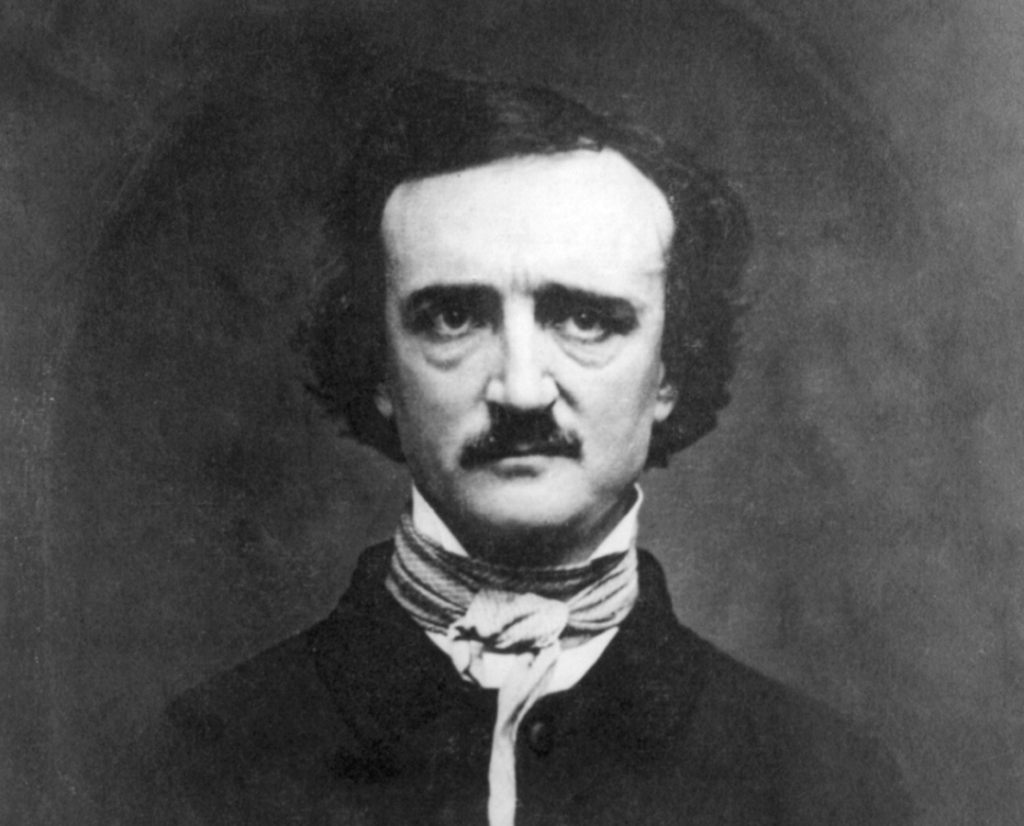
- 作者:エドガー・アラン・ポー(Edgar Allan Poe)
- 発刊:1845
- 国:アメリカ

ポーは江戸川乱歩の名前のもとになった人物として、日本では有名です。
ポーの執筆した小説「モルグ街の殺人」は、世界初の推理小説と言われています。
The Raven Once upon a midnight dreary, while I pondered, weak and weary, Over many a quaint and curious volume of forgotten lore— While I nodded, nearly napping, suddenly there came a tapping, As of some one gently rapping, rapping at my chamber door. “’Tis some visitor,” I muttered, “tapping at my chamber door— Only this and nothing more.” Ah, distinctly I remember it was in the bleak December; And each separate dying ember wrought its ghost upon the floor. Eagerly I wished the morrow;—vainly I had sought to borrow From my books surcease of sorrow—sorrow for the lost Lenore— For the rare and radiant maiden whom the angels name Lenore— Nameless here for evermore. And the silken, sad, uncertain rustling of each purple curtain Thrilled me—filled me with fantastic terrors never felt before; So that now, to still the beating of my heart, I stood repeating “’Tis some visitor entreating entrance at my chamber door— Some late visitor entreating entrance at my chamber door;— This it is and nothing more.” Presently my soul grew stronger; hesitating then no longer, “Sir,” said I, “or Madam, truly your forgiveness I implore; But the fact is I was napping, and so gently you came rapping, And so faintly you came tapping, tapping at my chamber door, That I scarce was sure I heard you”—here I opened wide the door;— Darkness there and nothing more. Deep into that darkness peering, long I stood there wondering, fearing, Doubting, dreaming dreams no mortal ever dared to dream before; But the silence was unbroken, and the stillness gave no token, And the only word there spoken was the whispered word, “Lenore?” This I whispered, and an echo murmured back the word, “Lenore!”— Merely this and nothing more. Back into the chamber turning, all my soul within me burning, Soon again I heard a tapping somewhat louder than before. “Surely,” said I, “surely that is something at my window lattice; Let me see, then, what thereat is, and this mystery explore— Let my heart be still a moment and this mystery explore;— ’Tis the wind and nothing more!” Open here I flung the shutter, when, with many a flirt and flutter, In there stepped a stately Raven of the saintly days of yore; Not the least obeisance made he; not a minute stopped or stayed he; But, with mien of lord or lady, perched above my chamber door— Perched upon a bust of Pallas just above my chamber door— Perched, and sat, and nothing more. Then this ebony bird beguiling my sad fancy into smiling, By the grave and stern decorum of the countenance it wore, “Though thy crest be shorn and shaven, thou,” I said, “art sure no craven, Ghastly grim and ancient Raven wandering from the Nightly shore— Tell me what thy lordly name is on the Night’s Plutonian shore!” Quoth the Raven “Nevermore.” Much I marvelled this ungainly fowl to hear discourse so plainly, Though its answer little meaning—little relevancy bore; For we cannot help agreeing that no living human being Ever yet was blessed with seeing bird above his chamber door— Bird or beast upon the sculptured bust above his chamber door, With such name as “Nevermore.” But the Raven, sitting lonely on the placid bust, spoke only That one word, as if his soul in that one word he did outpour. Nothing farther then he uttered—not a feather then he fluttered— Till I scarcely more than muttered “Other friends have flown before— On the morrow he will leave me, as my Hopes have flown before.” Then the bird said “Nevermore.” Startled at the stillness broken by reply so aptly spoken, “Doubtless,” said I, “what it utters is its only stock and store Caught from some unhappy master whom unmerciful Disaster Followed fast and followed faster till his songs one burden bore— Till the dirges of his Hope that melancholy burden bore Of ‘Never—nevermore’.” But the Raven still beguiling all my fancy into smiling, Straight I wheeled a cushioned seat in front of bird, and bust and door; Then, upon the velvet sinking, I betook myself to linking Fancy unto fancy, thinking what this ominous bird of yore— What this grim, ungainly, ghastly, gaunt, and ominous bird of yore Meant in croaking “Nevermore.” This I sat engaged in guessing, but no syllable expressing To the fowl whose fiery eyes now burned into my bosom’s core; This and more I sat divining, with my head at ease reclining On the cushion’s velvet lining that the lamp-light gloated o’er, But whose velvet-violet lining with the lamp-light gloating o’er, She shall press, ah, nevermore! Then, methought, the air grew denser, perfumed from an unseen censer Swung by Seraphim whose foot-falls tinkled on the tufted floor. “Wretch,” I cried, “thy God hath lent thee—by these angels he hath sent thee Respite—respite and nepenthe from thy memories of Lenore; Quaff, oh quaff this kind nepenthe and forget this lost Lenore!” Quoth the Raven “Nevermore.” “Prophet!” said I, “thing of evil!—prophet still, if bird or devil!— Whether Tempter sent, or whether tempest tossed thee here ashore, Desolate yet all undaunted, on this desert land enchanted— On this home by Horror haunted—tell me truly, I implore— Is there—is there balm in Gilead?—tell me—tell me, I implore!” Quoth the Raven “Nevermore.” “Prophet!” said I, “thing of evil!—prophet still, if bird or devil! By that Heaven that bends above us—by that God we both adore— Tell this soul with sorrow laden if, within the distant Aidenn, It shall clasp a sainted maiden whom the angels name Lenore— Clasp a rare and radiant maiden whom the angels name Lenore.” Quoth the Raven “Nevermore.” “Be that word our sign of parting, bird or fiend!” I shrieked, upstarting— “Get thee back into the tempest and the Night’s Plutonian shore! Leave no black plume as a token of that lie thy soul hath spoken! Leave my loneliness unbroken!—quit the bust above my door! Take thy beak from out my heart, and take thy form from off my door!” Quoth the Raven “Nevermore.” And the Raven, never flitting, still is sitting, still is sitting On the pallid bust of Pallas just above my chamber door; And his eyes have all the seeming of a demon’s that is dreaming, And the lamp-light o’er him streaming throws his shadow on the floor; And my soul from out that shadow that lies floating on the floor Shall be lifted—nevermore!
解説はこちらの記事で書いています。
ウォルター・ホイットマンの代表作「O Captain! My Captain!」
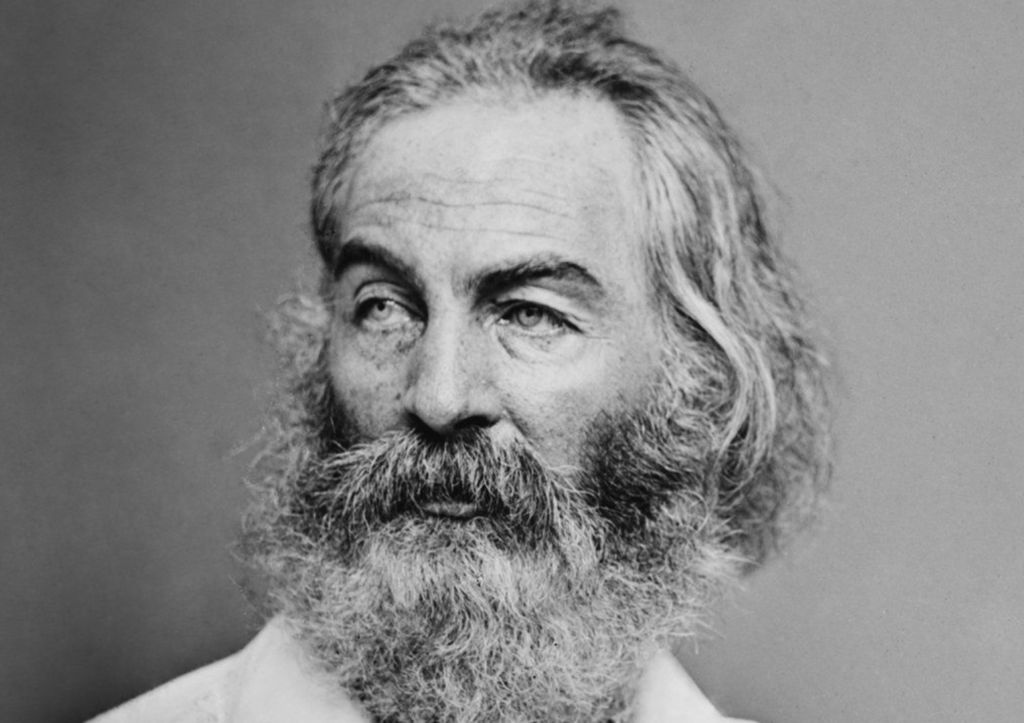
- 作者:ウォルター・ホイットマン (Walter Whitman)
- 発刊:1865
- 国:アメリカ

ホイットマンはそれまでの伝統的な詩の技法にとらわれずに作詩し、「自由詩の父」とも言われています。
この詩はアメリカの南北戦争を勝利に導いた、アブラハム・リンカーンのことを書いています。
O Captain! my Captain! O Captain! my Captain! our fearful trip is done, The ship has weather’d every rack, the prize we sought is won, The port is near, the bells I hear, the people all exulting, While follow eyes the steady keel, the vessel grim and daring; But O heart! heart! heart! O the bleeding drops of red, Where on the deck my Captain lies, Fallen cold and dead. O Captain! my Captain! rise up and hear the bells; Rise up—for you the flag is flung—for you the bugle trills, For you bouquets and ribbon’d wreaths—for you the shores a-crowding, For you they call, the swaying mass, their eager faces turning; Here Captain! dear father! This arm beneath your head! It is some dream that on the deck, You’ve fallen cold and dead. My Captain does not answer, his lips are pale and still, My father does not feel my arm, he has no pulse nor will, The ship is anchor’d safe and sound, its voyage closed and done, From fearful trip the victor ship comes in with object won; Exult O shores, and ring O bells! But I with mournful tread, Walk the deck my Captain lies, Fallen cold and dead.
解説はこちらの記事で書いています。
エミリー・ディキンソンの代表作「Because I could not stop for Death –」
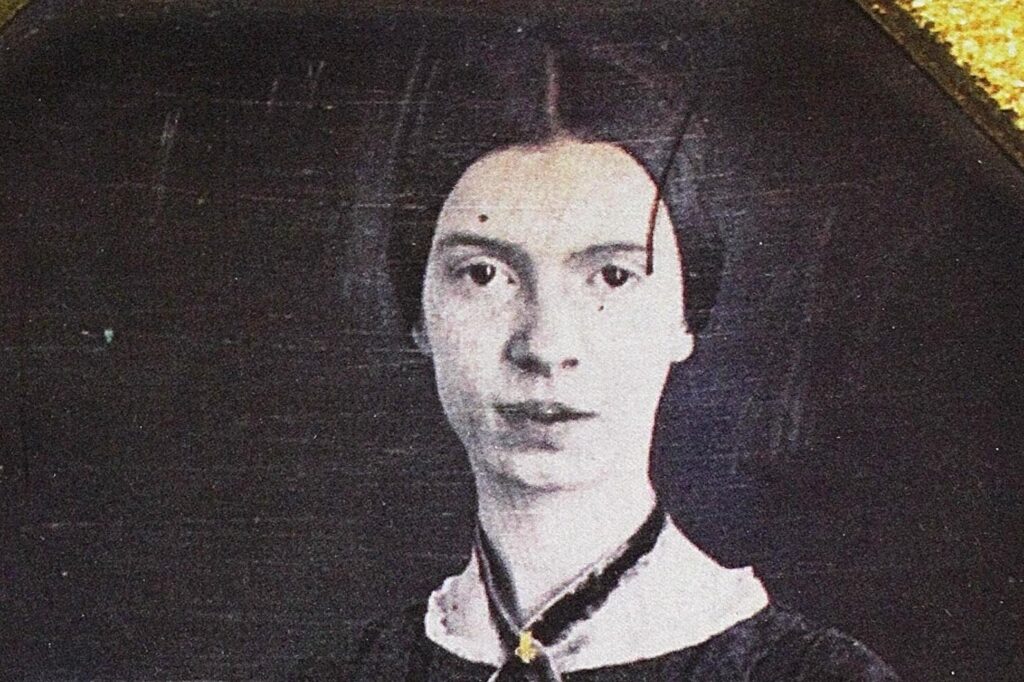
- 作者:エミリー・ディキンソン(Emily Dickinson)
- 発刊:1890
- 国:アメリカ

エミリー・ディキンソンの詩は短編で、内容も死や感情など人間の内面を表現するものが多く、当時としては画期的でした。
アメリカの文学女子が大好きな作家です。
Because I could not stop for Death – Because I could not stop for Death – He kindly stopped for me – The Carriage held but just Ourselves – And Immortality. We slowly drove – He knew no haste And I had put away My labor and my leisure too, For His Civility – We passed the School, where Children strove At Recess – in the Ring – We passed the Fields of Gazing Grain – We passed the Setting Sun – Or rather – He passed Us – The Dews drew quivering and Chill – For only Gossamer, my Gown – My Tippet – only Tulle – We paused before a House that seemed A Swelling of the Ground – The Roof was scarcely visible – The Cornice – in the Ground – Since then – ‘tis Centuries – and yet Feels shorter than the Day I first surmised the Horses’ Heads Were toward Eternity –
解説はこちらの記事で書いています。
ラドヤード・キプリングの代表作「If」
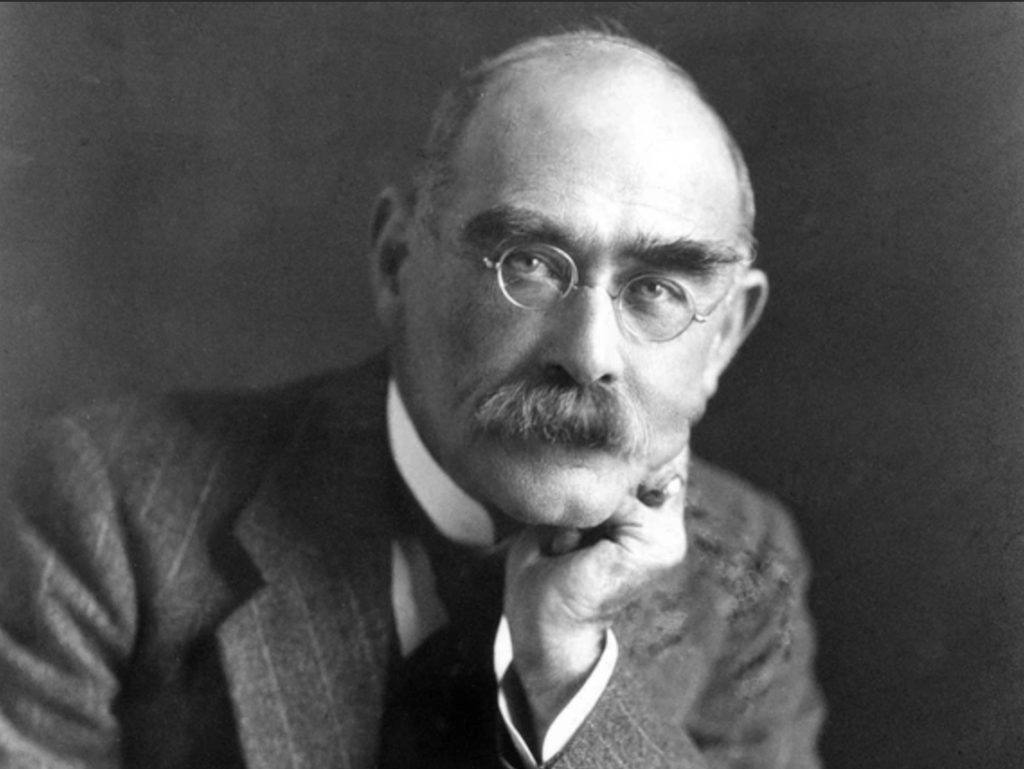
- 作者:ラドヤード・キプリング(Rudyard Kipling)
- 発刊:1910
- 国:イギリス

ラドヤード・キプリングは小説家としても有名で、イギリス統治下のインドを舞台にした作品を多く書いています。
彼の代表作「ジャングル・ブック」です。
If If you can keep your head when all about you Are losing theirs and blaming it on you, If you can trust yourself when all men doubt you, But make allowance for their doubting too; If you can wait and not be tired by waiting, Or being lied about, don’t deal in lies, Or being hated, don’t give way to hating, And yet don’t look too good, nor talk too wise: If you can dream—and not make dreams your master; If you can think—and not make thoughts your aim; If you can meet with Triumph and Disaster And treat those two impostors just the same; If you can bear to hear the truth you’ve spoken Twisted by knaves to make a trap for fools, Or watch the things you gave your life to, broken, And stoop and build ’em up with worn-out tools: If you can make one heap of all your winnings And risk it on one turn of pitch-and-toss, And lose, and start again at your beginnings And never breathe a word about your loss; If you can force your heart and nerve and sinew To serve your turn long after they are gone, And so hold on when there is nothing in you Except the Will which says to them: ‘Hold on!’ If you can talk with crowds and keep your virtue, Or walk with Kings—nor lose the common touch, If neither foes nor loving friends can hurt you, If all men count with you, but none too much; If you can fill the unforgiving minute With sixty seconds’ worth of distance run, Yours is the Earth and everything that’s in it, And—which is more—you’ll be a Man, my son!
解説はこちらの記事で書いています。
ロバート・フロストの代表作「The Road Not Taken」

- 作者:ロバート・フロスト(Robert Frost)
- 発刊:1915
- 国:アメリカ

アメリカの中学校に通っていた際に、国語(Language Arts)の授業で習った思い出の作品です。
はじめて読んだときに鳥肌が立ったことを今でも覚えています。
The Road Not Taken Two roads diverged in a yellow wood, And sorry I could not travel both And be one traveler, long I stood And looked down one as far as I could To where it bent in the undergrowth; Then took the other, as just as fair, And having perhaps the better claim, Because it was grassy and wanted wear; Though as for that the passing there Had worn them really about the same, And both that morning equally lay In leaves no step had trodden black. Oh, I kept the first for another day! Yet knowing how way leads on to way, I doubted if I should ever come back. I shall be telling this with a sigh Somewhere ages and ages hence: Two roads diverged in a wood, and I— I took the one less traveled by, And that has made all the difference.
解説はこちらの記事で書いています。
シルヴィア・プラスの代表作「Lady Lazarus」
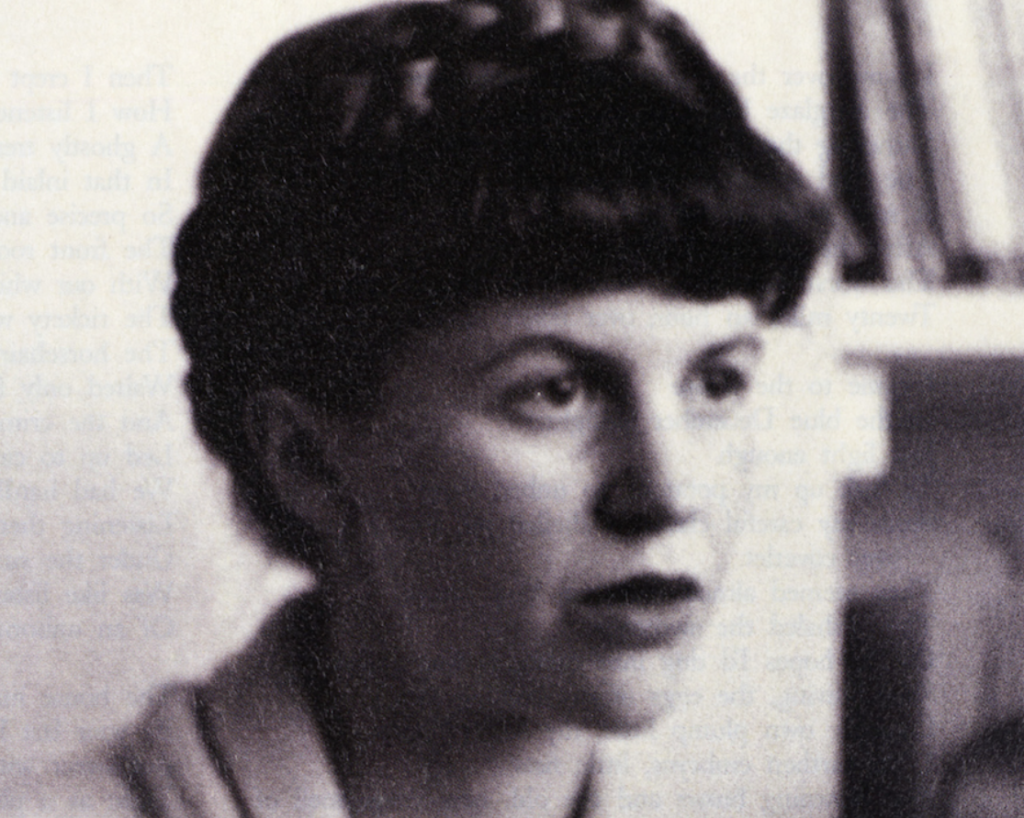
- 作者:シルヴィア・プラス(Sylvia Plath)
- 発刊:1965
- 国:アメリカ

詩人のテッド・ヒューズと結婚し、作品に影響を与える一方で、ヒューズの不倫にも悩まされ、後に離婚し精神的に追い込まれます。
その精神状態の中、”Lady Lazarus”や”Daddy”などの傑作を生みだしました。
彼女は二人の子供を残し、オーブンに頭を突っ込み自殺したという衝撃的な最期でも有名です。
Lady Lazarus I have done it again. One year in every ten I manage it—— A sort of walking miracle, my skin Bright as a Nazi lampshade, My right foot A paperweight, My face a featureless, fine Jew linen. Peel off the napkin O my enemy. Do I terrify?—— The nose, the eye pits, the full set of teeth? The sour breath Will vanish in a day. Soon, soon the flesh The grave cave ate will be At home on me And I a smiling woman. I am only thirty. And like the cat I have nine times to die. This is Number Three. What a trash To annihilate each decade. What a million filaments. The peanut-crunching crowd Shoves in to see Them unwrap me hand and foot—— The big strip tease. Gentlemen, ladies These are my hands My knees. I may be skin and bone, Nevertheless, I am the same, identical woman. The first time it happened I was ten. It was an accident. The second time I meant To last it out and not come back at all. I rocked shut As a seashell. They had to call and call And pick the worms off me like sticky pearls. Dying Is an art, like everything else. I do it exceptionally well. I do it so it feels like hell. I do it so it feels real. I guess you could say I’ve a call. It’s easy enough to do it in a cell. It’s easy enough to do it and stay put. It’s the theatrical Comeback in broad day To the same place, the same face, the same brute Amused shout: ‘A miracle!’ That knocks me out. There is a charge For the eyeing of my scars, there is a charge For the hearing of my heart—— It really goes. And there is a charge, a very large charge For a word or a touch Or a bit of blood Or a piece of my hair or my clothes. So, so, Herr Doktor. So, Herr Enemy. I am your opus, I am your valuable, The pure gold baby That melts to a shriek. I turn and burn. Do not think I underestimate your great concern. Ash, ash— You poke and stir. Flesh, bone, there is nothing there—— A cake of soap, A wedding ring, A gold filling. Herr God, Herr Lucifer Beware Beware. Out of the ash I rise with my red hair And I eat men like air.
解説はこちらの記事で書いています。
マヤ・アンジェロウの代表作「Still I rise」

- 作者:マヤ・アンジェロウ(Maya Angelou)
- 発刊:1978
- 国:アメリカ

マヤ・アンジェロウはアメリカの詩人、歌手、女優です。
マーティン・ルーサー・キング・ジュニアとともに黒人の公民権運動に参加しました。
人種差別が根強かった時代において、自由を勝ち取るために活躍したアメリカのヒーローのひとりです。
キング牧師の演説はこちらの記事で解説しています。
Still I Rise You may write me down in history With your bitter, twisted lies, You may trod me in the very dirt But still, like dust, I’ll rise. Does my sassiness upset you? Why are you beset with gloom? ’Cause I walk like I’ve got oil wells Pumping in my living room. Just like moons and like suns, With the certainty of tides, Just like hopes springing high, Still I’ll rise. Did you want to see me broken? Bowed head and lowered eyes? Shoulders falling down like teardrops, Weakened by my soulful cries? Does my haughtiness offend you? Don’t you take it awful hard ’Cause I laugh like I’ve got gold mines Diggin’ in my own backyard. You may shoot me with your words, You may cut me with your eyes, You may kill me with your hatefulness, But still, like air, I’ll rise. Does my sexiness upset you? Does it come as a surprise That I dance like I’ve got diamonds At the meeting of my thighs? Out of the huts of history’s shame I rise Up from a past that’s rooted in pain I rise I’m a black ocean, leaping and wide, Welling and swelling I bear in the tide. Leaving behind nights of terror and fear I rise Into a daybreak that’s wondrously clear I rise Bringing the gifts that my ancestors gave, I am the dream and the hope of the slave. I rise I rise I rise.
解説はこちらの記事で書いています。
英詩がわかりやすくなるおすすめの解説本
英詩のわかり方
発売:2007年
著者:阿部 公彦
著者は東京大学の教授を務める英文学者です。
この本ではシェイクスピア、ホイットマン、シェリー、シルヴィア・プラス、ディキンソンなど、代表的な英米の詩をとりあげています。
詩の構造というよりむしろ、詩の読み方や楽しみ方の解説が多く、紹介するほかの本と比べ、最も入門者向けだと思います。
英詩理解の基礎知識
発売:1980年
著者:志子田 光雄
著者は東北学院大学文学部教授、英文学科長、国際交流センター所長などを歴任した、ヨーロッパ文学の専門家です。
大学・短大での講義用に書かれており、要所要所に練習問題があるのが特徴です。
英詩の詩語・イメージ・比喩・象徴と寓意・韻律と詩形などに関する基礎知識を、それぞれ実際の詩に即しながら解説しています。
英詩鑑賞入門
発売:1986年
著者:新井 明
著者は日本女子大学名誉教授の英文学者です。
「失楽園」で有名なジョン・ミルトンを専門に研究しています。
「英詩鑑賞入門」では、巻末で英詩の構造を解説していますが、入門と名の付く割には初心者の入門書とするにはレベルが高いとの指摘もあります。
しかし、英詩を解説している本が少ないことと、1986年から読まれ続けていることを考えると、読む価値はあります。
まとめ
英語の詩の話題についていくことができれば、多少英語が苦手でも教養のある人物と見られます。
まずは知識として詩を覚えて、徐々に自分なりの翻訳をしたり、解釈をしたりと楽しんでいきましょう。
詩と同様に知っておくべき映画をこちらの記事でご紹介していますので、合わせてご覧ください。














